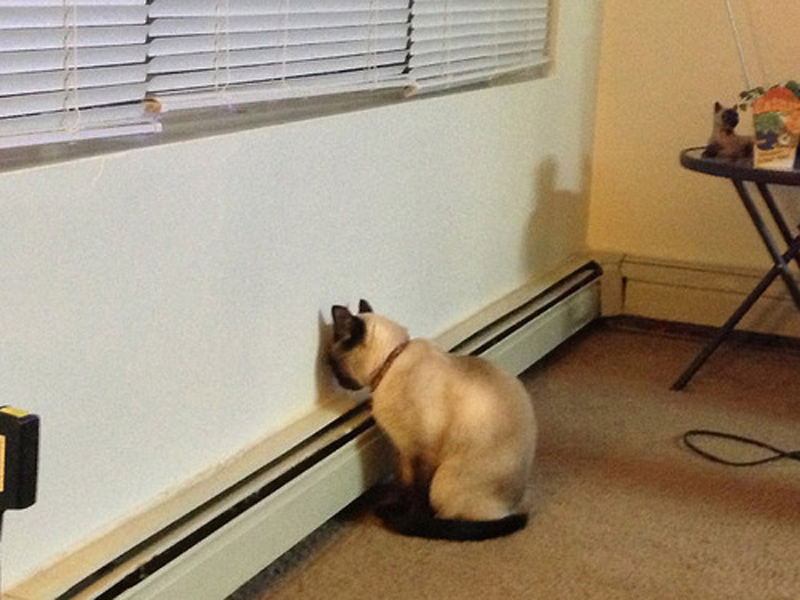As a pet owner, it's crucial to be aware of unusual behaviors in your dog or cat. Our furry friends can't directly tell us if something is wrong or when they are in pain, so it's important to look out for any unusual changes in behavior that they exhibit.
Some of these behaviors are normal idiosyncrasies, while others are warning signs that threaten your pet's life. Without knowing what these behaviors are, many times the symptoms go overlooked. Smaller things like unkept fur on their bodies or a big drop in energy can sometimes go unchecked even by the most vigilant of owners. But recognizing these signs can indeed save your pet's life.
The compulsive pressing of the head against a hard surface like a wall, for instance, is a sign of a deep problem. According to PetMD, when an animal engages in "head pressing," it could be the symptom of multiple issues, including toxic poisoning, infection of the nervous system, a tumor, or head trauma. Head pressing may be accompanied by other symptoms, such as changes in learned behavior, compulsive pacing or circling, seizures, damaged reflexes, and visual problems.
If your pet exhibits any of these signs, call your vet immediately.
Also, it's important to know the difference between "head pressing" and "head butting." Head butting — when your cat or dog gently rubs their head against you (or, in the case of cats, certain objects around the house) — is an affectionate act.
To make yourself better aware of how to identify head pressing, as well as its other signs and symptoms, check out the images and video below. This simple knowledge can help you keep your pet happy, healthy, and safe!
And please SHARE this article with all of your pet-owning friends!
Have you ever seen your cat or dog do this before? It may seem funny, but this behavior can often be a sign of a serious health issue.





